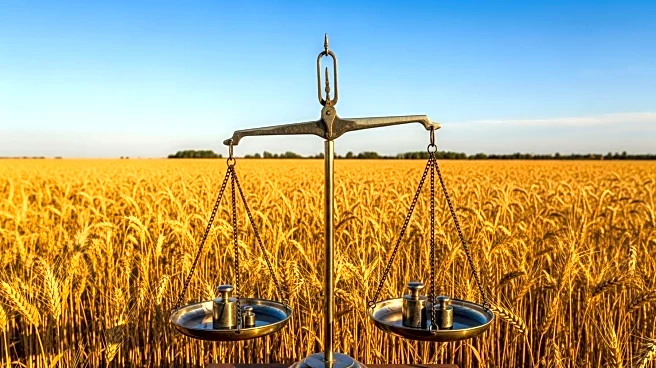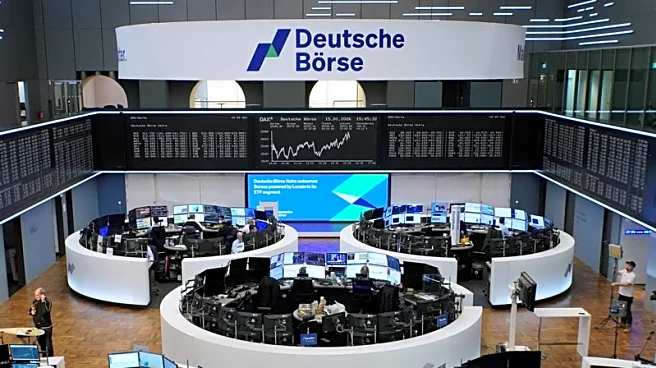What's Happening?
The World Trade Organization is witnessing increased disputes as the United States imposes higher tariffs on imports, affecting global farm trade. Brazil has requested consultations with the U.S., following similar actions by Canada and China. The U.S. has reimposed a 10 percent duty on imports, impacting around 70 products, including key agricultural goods. This move has led to weak demand for U.S. sorghum and increased costs for corn farmers, who are facing shrinking margins and global market pressures. Additionally, dairy farmers are experiencing strong output and export gains but are challenged by lower prices and tighter margins.
Why It's Important?
The tariff disputes at the WTO highlight the fragile balance between trade policy and farm exports. U.S. agriculture is at risk due to these tariffs, which could lead to retaliation, lost markets, and higher costs for growers. The disputes underscore the challenges faced by U.S. farmers in maintaining competitive pricing and market access. The situation could lead to significant economic strain on the agricultural sector, affecting both domestic and international stakeholders.
What's Next?
The ongoing tariff disputes may lead to further consultations and negotiations at the WTO. U.S. farmers and agricultural stakeholders will need to adapt to changing market conditions and explore alternative markets to mitigate the impact of tariffs. The outcome of these disputes could influence future trade policies and agreements, potentially reshaping global agricultural trade dynamics.











